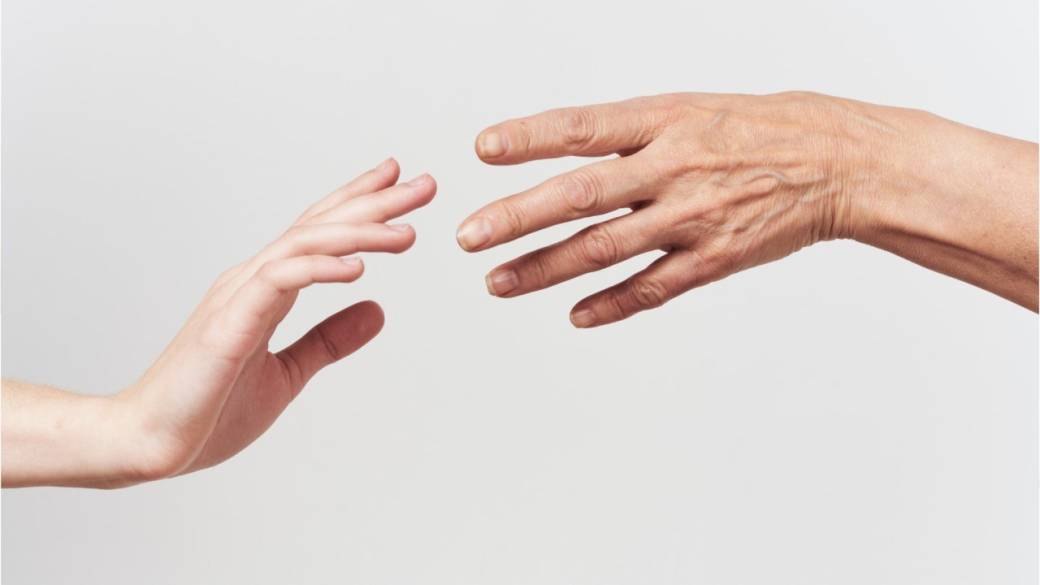By Rifqah Husna
Whether we are aware of its existence or not we are currently experiencing some kind of ‘skin hunger’ particularly during the current lockdown and staying at home syndrome that has completely changed our way of life.
Yes, COVID-19 has changed our life in different ways. Have you thought what ‘skin hunger’ is all about? Calm down, the aforementioned hunger is not related to a zombie apocalypse.
Skin hunger, also known as ˜affection deprivation, is a deep longing desire for physical contact with another person. This occurs when a person experiences little to no touch from other living things. For example, the loneliness people face during quarantine; isolating ones self at home for a prolonged time to prevent the new virus from spreading.
Surely, social contact can be maintained with our far apart friends, colleagues and families through social media, phone calls or video calls. But do we realise the frequent use of video calls such as WhatsApp, Facetime, Zoom and Skype weeks after weeks during quarantined at home? This is because we long to have another persons presence either right in front or next to us.
According to Kory Floyd, a communication professor at University of Arizona and an expert on affection deprivation, œTouch is so important. Not only to relationships, human connection and attachment, but also important to health and well-being both physically and mentally.
Floyd also mentioned that based on the results of population studies, young adults are the loneliest population compared to the elderly population. This statement can be supported by a recent online survey conducted by Ipsos on behalf of Global News in Toronto, Canada.
The result shows that younger Canadians are more likely to be experiencing loneliness particularly among those aged 18-34 (68%) compared to those aged 35-54 (58%) or 55+ (40%) due to physical distancing. However, most Canadians agree (95%) that they are using technology to stay close with friends and family.
While technology can help make physically isolated people feel less lonely or even more socially connected than before, experts know technology cannot replace the primal need for a human touch. Just like how humans are hungry for food and water, they are also hungry for physical contact.
According to Joshua Peters, a psychotherapist at Centre for Interpersonal Relationship, people who experience lack of touch may start to exhibit symptoms of depression. œThe feelings of hopelessness, stress, anger and low motivation are all common, Peters said.
Why are humans hungry for a touch?
As mentioned, the ability to give and receive physical contact – hold hands, pat and hug is beneficial for human health.
Have you ever heard about ˜love hormone?
Oxytocin, also commonly called love hormone, is released by the brain through nonsexual touching. This hormone plays a fundamental role which positively influences human social behaviour.
Oxytocin stimulates the release of dopamine and serotonin levels that connect to human happiness and well-being. For example, hugging alone can lower human stress hormone, cortisol.
Tiffany Field, the head of Touch Research Institute, found that massaging the body increases natural killer cells (lymphocytes), the front-liners of the immune system. Supposedly, stress hormone kills natural killer cells but since the release of oxytocin helps in knocking down production of cortisol, more natural killer cells can be saved. Isnt that great?
In addition, Field conducted a research on the effects of touch deprivation between pre-schoolers on playgrounds in Paris and Miami back in 2018. The result shows that children in Paris, who are getting touched more by their parents and interacting with each other such as touching, hugging and stroking, are more likely to be less aggressive, both verbally and physically, compared to the children in Miami.
As nurture touch helps to provide positive stimulation for a young brain to grow healthily, Muslims can take Prophet Muhammad SAW as an exemplary for being affectionate and loving especially towards young kids. Wherever Prophet SAW met young children, he would pat, caress gently on top of their head and place a kiss lovingly.
Another affectionate action by our beloved prophet can be seen in a hadith narrated by Usamah bin Zaid whereby when he was younger, Prophet SAW would place him and Al-Hasan on his lap to be hugged.
Physical contact between human beings is way more crucial than what we thought. More good than bad, physical contact provides comfort, improves young kids brain developments and increases production of good hormones for the human body.
Living during the pandemic era is not only a wonderful experience but surely a memorable one. Without lockdown or quarantine experiences, we might never, ever know the existence of ˜skin hunger and probably continue to take our parents and friends precious touches for granted.
A single touch is simple, free and beneficial. Easy to give and to be received, so make use of them. Anyway, why throw away all the good things in front of us? ***
